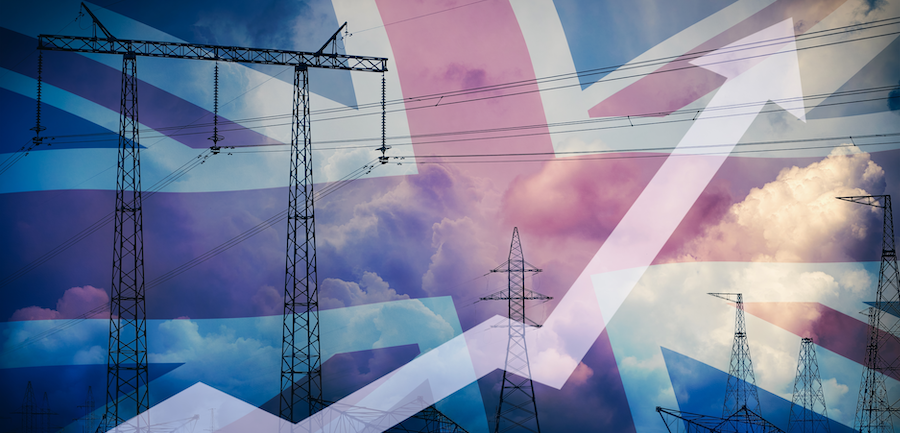
The UK government’s new energy strategy lays out how the country will keep the lights on for the decades to come. Let’s find out more about it.
At the end of March 2023, the UK government published a 2,800-page strategic document laying out its aims and targets for the nation’s energy moving forward. Titled ‘Powering Up Britain’, this document generated a significant stir in the UK energy industry with comments both positive and negative.
Energy security is vital to everything else working in the UK. Without a reliable energy network, you can’t have a strong economy, a robust transport system or anything else. In this article, we’ll look at five aspects of energy touched on by the government’s document. Will it be enough to get Britain powered up?
A warm welcome?
Powering Up Britain was, on the whole, welcomed warmly by UK energy experts, not least because it’s highly detailed (2,800 pages) compared to last year’s British Energy Security Strategy (published by Boris Johnson), which was a mere 38 pages. However, some commentators pointed out that some parts of the document are still vague on targets and how they will achieve them.
Let’s look at five aspects of the UK energy industry and how Powering Up Britain addresses them. These are:
- Heating
- Gas storage
- Renewables
- Energy efficiency
- Energy bills
1 – Heating
The document contained several announcements on how Britain will heat its homes in the years to come. These included:
- Maintaining the target to phase out gas boilers in 2035 rather than moving it forward to 2033
- Extending the Boiler Update Scheme, which hands out grants to households to convert to heat pumps. It will now last until 2028
- A scheme to install a number of heat pumps (number not specified) for every conventional boiler sold
There’s also a plan to make hydrogen a central part of Britain’s energy network. But rather than recommend hydrogen as a heating fuel in homes, it should be used more in heavy industry as part of their decarbonisation initiatives. Hydrogen boilers in our homes are unlikely to happen in the near future.
2 – Gas storage
Gas storage is a hot topic in the UK energy industry. After all, it was only a few months ago that we were worrying about blackouts during the winter, as our storage capacity was thought to be insufficient.
The document announced that the Future System Operator (a new energy security body) would conduct an assessment of the availability and reliability of gas storage in the UK.
However, some experts believe we already know the answer. While the UK does not get as much gas from Russia as other countries, we still feel the effects when Russia’s actions drive up the market price of gas. While a new assessment will be interesting to read, it won’t solve that problem.
3 – Renewables
The UK has staked a lot on renewables to improve energy security, notably offshore wind. However, the government’s own figures show that it’s unlikely to meet the target of 50GW of offshore wind power by 2030. Delays to planning and network building are blamed for this negative result.
Powering Britain announced how the government will try to catch up:
- Publish an action plan to cut development times in half
- Reclassifying offshore wind projects as critical national infrastructure to speed up the planning process
- £160 million support package for UK wind manufacturing and supply chain businesses
However, some experts argue that it’s not enough, especially compared to how the US and EU support their renewables industries. There are also concerns that onshore wind needs to be more of a priority.
4 – Energy efficiency
Along with producing (and storing) more energy, cutting consumption is part of a twin strategy to safeguard energy security. However, trimming our energy use is rarely mentioned in the same breath. Powering Up Britain did not contain many details on energy efficiency, which disappointed some observers.
The ECO+ insulation grant scheme has been rebranded as the Great British Insulation Scheme, but no extra funding was announced. On the other hand, the government is moving forward with an initiative to make homes in the private rental sector more energy efficient.
5 – Energy bills
This country’s energy bills are too high, even with a multi-billion pound support scheme.
In Powering Up Britain, the government set out its ideas to lower bills on a more long-term basis. These included moves to balance gas and electricity proportions in household bills by focusing on electric home heating.
What happens next?
We welcome the new Powering Up Britain. While it can’t solve every problem the UK energy industry faces, it shows that the government is devoting serious thought to it. You only have to contrast its 2,800 pages to last year’s 38-page document.
The test is whether the words contained in Powering Up Britain will be backed up with actions. With a general election looming shortly, it may be tempting to wait to start on the serious work the UK energy industry needs. However, regardless of political volatility, we can’t wait that long. We must get moving now if we are truly going to ‘power up’.
